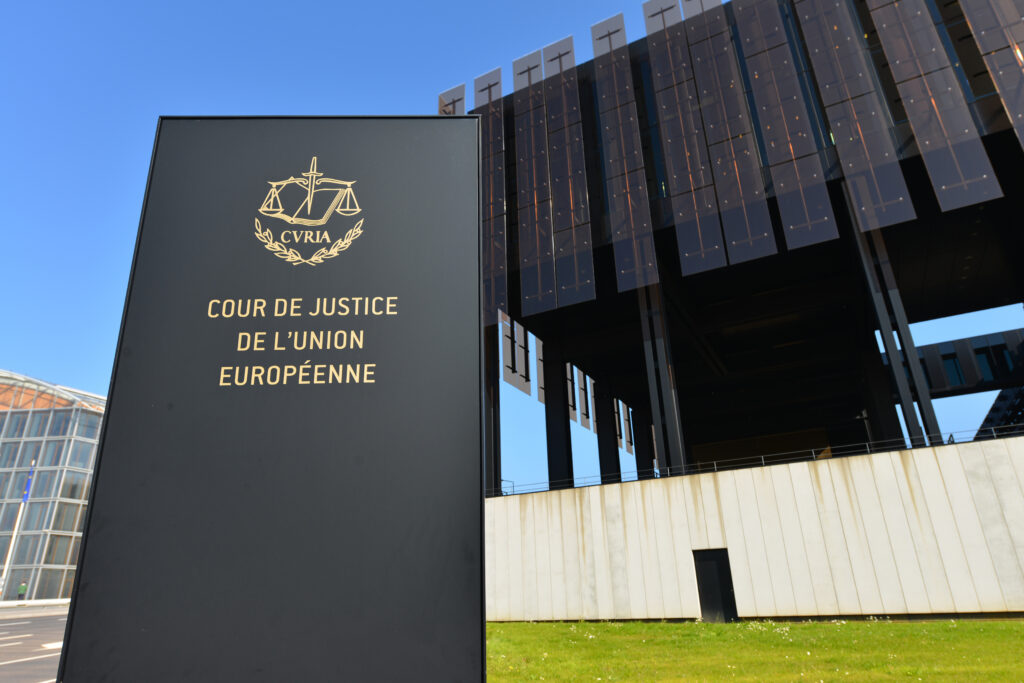Although the government, in accordance with the law, published the Supreme Court’s resolution on the validity of Karol Nawrocki’s election as President of the Republic of Poland, it added a note questioning the legitimacy of the Court, even though no legal provision authorises the government to do so. For this reason, the Supreme Court notified the prosecutor’s office of the possibility of a criminal offence of exceeding its powers. This is yet another action by the government demonstrating how difficult it is for it to come to terms with the election results and the defeat of its candidate.
In line with the otherwise rather unexpected announcements by Donald Tusk, on 4 July this year, the government published in the Journal of Laws the Supreme Court’s resolution on the validity of the presidential election.
As we have already described, in this Resolution, the Supreme Court, composed of judges of the Extraordinary Control and Public Affairs Chamber of the Supreme Court, after hearing in open session the Prosecutor General – Minister of Justice Adam Bodnar and the Chairman of the State Electoral Commission, Judge Sylwester Marciniak, declared the election of Karol Tadeusz Nawrocki as President of the Republic of Poland on 1 June 2025 to be valid.
Pursuant to Article 324 § 3 of the Electoral Code, the Supreme Court’s resolution on the validity of the presidential election must be published in the Journal of Laws. This obligation, pursuant to Article 21 of the Act on the publication of normative acts and certain other legal acts, rests with the Prime Minister, as the body issuing the official journals Dziennik Ustaw and Monitor Polski, with the assistance of the Government Legislation Centre.
Therefore, although the obligation to publish was fulfilled, the Prime Minister exceeded his powers in doing so. The resolution was accompanied by the following annotation in the Journal of Laws, which was not included in the text adopted by the Supreme Court:
In accordance with the judgments of the European Court of Human Rights in the cases of Wałęsa v. Poland (application no. 50849/21), Reczkowicz v. Poland (application no. 43447/19), Dolińska-Ficek and Ozimek v. Poland (application nos. 49868/19 and 57511/19), Advance Pharma sp. z o.o. v. Poland (application no. 1469/20) and Grzęda v. Poland (application no. 43572/18), as well as in accordance with the case law of the Court of Justice of the European Union, including the judgment of 21 December 2023, L.G. v. the National Council of the Judiciary, case C-718/21, and the judgment of 7 November 2024, C.W. S.A. and others v President of the Office of Competition and Consumer Protection, case C-326/23, the National Council of the Judiciary established under the Act of 8 December 2017 amending the Act on the National Council of the Judiciary and certain other acts (Journal of Laws of 2018, item 3) does not guarantee independence from the legislative and executive authorities, and irregularities in the process of appointing judges do not allow the Supreme Court – ruling in panels in which a person appointed to the office of judge by the President of the Republic of Poland at the request of the National Council of the Judiciary formed in accordance with the provisions of the Act of 8 December 2017 amending the Act on the National Council of the Judiciary and certain other acts – as a court established by law.
No legal provision authorises the Prime Minister to make any annotations on documents published in official journals. In the light of Article 7 of the Constitution, which establishes the principle of legality (Public authorities shall act on the basis of and within the limits of the law), it is not permissible for government authorities to assume any powers that have not been conferred on them by generally applicable law – primarily the Constitution and statutes.
Therefore, the Prime Minister’s action of adding a note to the Resolution not only has no effect on the legal status of the Resolution, but above all may have legal consequences for the Prime Minister himself. This is the opinion of the First President of the Supreme Court, Małgorzata Manowska, who reported a suspected offence under Article 231 § 1 of the Criminal Code, i.e. the so-called exceeding of powers:
A public official who, by exceeding his powers or failing to fulfil his duties, acts to the detriment of the public or private interest, shall be subject to imprisonment for up to 3 years.
The First President described the Prime Minister’s action as:
unlawful interference by the executive in the content of a Supreme Court ruling and a brazen attack on the independence of the Supreme Court.
The judge emphasised that:
The statutory provisions regulating the publication of Supreme Court resolutions confirming the validity of the election of the President of the Republic of Poland, similarly to the Act on the publication of normative acts and certain other legal acts, do not provide for the possibility of adding any additional content to the publications in the Journal of Laws, apart from the content of the Supreme Court’s resolutions. In particular, no content may be added pursuant to a resolution of the Council of Ministers, which in the light of Article 93(1) of the Constitution is not a source of law and therefore cannot modify the content of any act, but must be consistent with them.
In her opinion, the action of the Prime Minister, exceeding the scope of his powers and duties under the Electoral Code and the Act on the publication of normative acts and certain other legal acts, most certainly fulfils the criteria set out in the aforementioned Article 231 of the Criminal Code. She emphasised that:
There is no doubt that the unlawful attack by the executive on the independence of the Supreme Court is an act detrimental to the public interest.
At the same time, the First President recalled that this is not the first time that the Prime Minister has committed such a violation. Already in December last year, the Supreme Court issued a very similar opinion, in which it pointed out the inadmissibility of adding similar annotations to the then resolutions of the Supreme Court confirming the validity of the elections to the European Parliament and the supplementary elections to the Senate of the Republic of Poland. That opinion clearly emphasised the hypocrisy of Minister Bodnar, who had repeatedly participated in proceedings before the Extraordinary Review and Public Affairs Chamber of the Supreme Court. At the same time, the First President declared that she would not report the offence to the Public Prosecutor’s Office:
solely due to the fact that the current political situation does not allow for any hope that such a report would result in adequate action by that office.
However, in the current situation, the First President has clearly decided that not taking such a step would only embolden the current government to continue its abuses, which can already be described as flagrant.
It should also be mentioned that the Extraordinary Review and Public Affairs Chamber of the Supreme Court is not the only body whose rulings the current government has annotated with unlawful comments. A similar practice has been used also against the Constitutional Tribunal. Here, however, the Prime Minister decided to go a step further in violating not only the Act on the publication of normative acts and certain other legal acts, but also Article 190(2) of the Constitution (Constitutional Tribunal rulings […] shall be published immediately in the official body in which the normative act was published. If the act has not been published, the ruling shall be published in the Official Journal of the Republic of Poland, Monitor Polski). Namely, since March 2024, it has ceased to publish any judgments of the Tribunal in official journals. The obvious unlawfulness of this omission has been pointed out several times by the Ombudsman.
As a side note, the First President of the Supreme Court also pointed out that the judgments of the European Court of Human Rights and the Court of Justice of the European Union referred to in the annotation are completely irrelevant to the resolution in question. As we have repeatedly stated, following the position of the Supreme Court and as also acknowledged by the OSCE Observation Mission, issues related to the organisation and validity of the presidential elections in Poland are not subject to European Union law and do not fall within the scope of Article 6 of the European Convention on Human Rights, which establishes the right to a fair trial, but only in civil and criminal matters. On this occasion, doubts may be raised once again as to whether these courts, in adopting the rulings referred to in the annotation, have exceeded the limits of the powers conferred on them by Poland in the relevant treaties.
In summary, it is difficult to say what the Prime Minister’s action is intended to achieve. Sejm Marshal Szymon Hołownia signed a decision to convene the National Assembly for the swearing-in of the newly elected President of the Republic of Poland on 6 August 2025. Any delay by the government in publishing this decision in Monitor Polski, or the bizarre letter from Minister Bodnar to Marshal Hołownia, the purpose of which is difficult to discern (the author does not include any conclusions or recommendations, but merely presents a litany of the same allegations against the Extraordinary Review and Public Affairs Chamber of the Supreme Court as before) should not affect the convening of the Assembly in any way. It is all the more regrettable that the government has decided to take this opportunity to strike at the judiciary, usurping powers that it does not have. The purely technical obligation to publish legal acts cannot be used as a tool for political. One can only hope that the notification of the First President of the Supreme Court will be duly considered and the government’s practice curtailed.
Image source: Adobe Stock.



